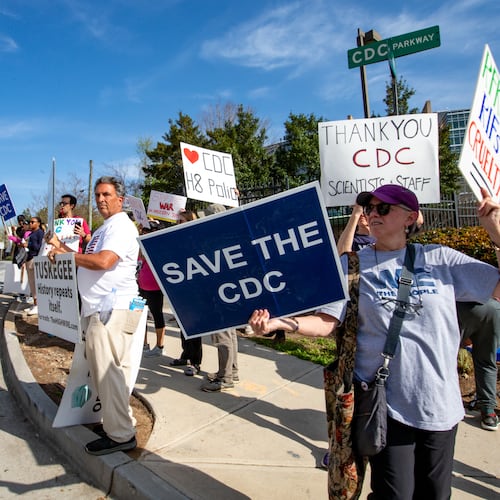Georgia may be in line to forge a new path in the way the nation funds Medicaid expansion for the poor, potentially putting the state in line for millions of additional dollars from the federal government, a Trump administration official told The Atlanta Journal-Constitution on Wednesday.
If it bears out, it’s a victory for Gov. Brian Kemp’s health care plans for the state, and a blow to Democrats who argued against his plan. And it’s just one way in which Georgia’s proposal might serve as a national model for more stringent Medicaid guidelines that the Trump administration favors, according to remarks from the official, Seema Verma.
Verma is administrator of the Centers for Medicare and Medicaid Services within the U.S. Department of Health and Human Services.
Kemp’s office and state health officials are crafting a plan to possibly expand Medicaid to cover more of Georgia’s poor. How it gets done and where it stops short are matters of fierce contention.
The Legislature passed a law proposed by Kemp this year to deal with some of the 500,000 uninsured poor Georgians who are not eligible for Medicaid. But Kemp's plan would stop short of simply expanding Medicaid to all of them as proposed under the Affordable Care Act. Instead, Kemp plans to ask the federal government for a "waiver" of federal rules in order to tailor a Medicaid program specifically for Georgia. It would cover fewer people than full Medicaid expansion.
There’s a consequence of that under the Affordable Care Act. If a state does full expansion to all its poor, the law says the federal government will pay 90% of the cost.The state would only have to pay $1 for every $9 the feds chip in.
If a state does less than that through a waiver, it traditionally would receive its regular Medicaid match. In Georgia, that means the state would pay about one-third, or $1 for every $2 the feds contribute.
Democrats panned Kemp’s proposals not only for covering too few people but also for passing up the extra federal money.
However, things may be changing.
During a visit to Atlanta for a national health conference Wednesday, Verma told the AJC that when Georgia submits its application for a Medicaid waiver to cover some poor people who aren’t currently covered by Medicaid, the Trump administration is considering amping up the federal contribution to 90%.
“That’s still under consideration,” she said. “We haven’t ruled it out.”
Moreover, when asked about some conservative waiver ideas floated in Georgia, Verma was open. While she didn’t pass judgment on the proposals specifically, she said such innovation and risk-taking was what the administration was glad to see from states.
Those included a proposal where hospitals might reshape their care programs to both reduce costs and receive more federal money for their work. They would put some of their uninsured patients into the new program and on Medicaid. But the hospitals would bear any cost overruns themselves if the new programs ran over budget.
That’s a big deal. Under traditional Medicaid, the federal government shares all costs with no cap if the costs are warranted. Conservatives have long aimed to cap the federal contribution to Medicaid in some way.
Such moves, as well as rewarding more tailored waivers with 90% federal financial support, are likely to run into political and court challenges. Work requirements, favored by many Georgia GOP leaders, have already been blocked by a federal judge. The CMS is contesting the rulings.
Verma said the administration was dedicated to continuing to push for such measures in its support for innovation.
Stay on top of what’s happening in Georgia government and politics at www.ajc.com/politics.
About the Author
Keep Reading
The Latest
Featured



